A story of the forced emigration of one of the strike leaders of Belaruskali
2 October 2020, 13:30 | Alena Litvinava, Radio Svaboda
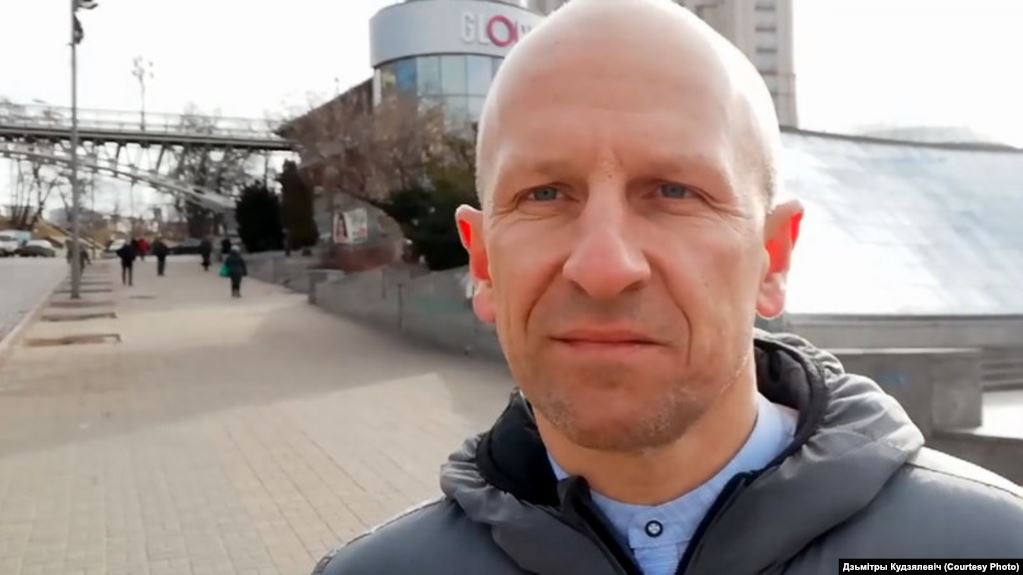
Source: Dzmitry Kudzialevich (Courtesy Photo) via Radio Svaboda
The escape of Dzmitry Kudzialevich, a mining engineer and one of Belaruskali strike committee leaders, from a KGB questioning in Salihorsk resembles a crime story. However, he got out of this unharmed – he managed to cross the Belarusian border and escaped first to Ukraine and later to Poland.
Radio Svaboda interviewed Dzmitry Kudzialevich about how he managed to escape and what he is doing now.
Beguiled and taken to the KGB
Dzmitry Kudzialevich was detained on 20 August, when he was invited to a fake meeting of the so-called fellow committee members in order to discuss the details of the strike. When he came to the meeting, his car got surrounded, he got pulled out, put into a minivan and brought to the local KGB department in Salihorsk. There, during a break in the interrogation process when only one KGB employee was left, Dzmitry asked for permission to go to a toilet from where he managed to escape through a small casement window.
It was his lucky chance that he left his keys in the car when the KGB employees were detaining him. This gave him the possibility to escape in his own car and reach the nearest Belarusian border.
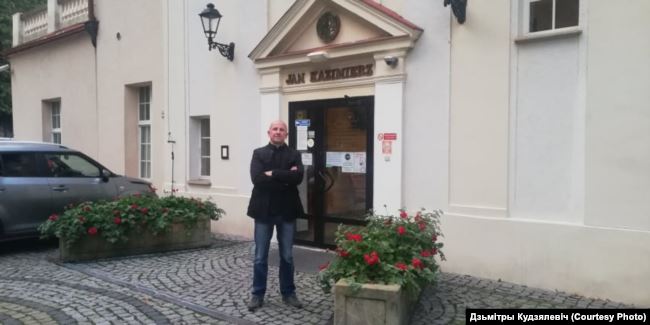
Source: Dzmitry Kudzialevich (Courtesy Photo) via Radio Svaboda
What the KGB asked about
“Firstly, the KGB employees were interested in the names of those who financed the strikes. Secondly, they wanted a list of those colleagues who had supported the strike and had signed the demands (to cancel the results of the elections, to stop violence and to organise new fair elections).”
During the interrogation he was continuously threatened with criminal liability, but he did not experience any physical violence.
“When I managed to get out of the building, I went to my car, left Salihorsk and hid in a country church. I had visited this church lately, that’s why my first thought was to hide there. However, after half an hour of thinking it over I understood that, sooner or later, they would find me there. I do not know what plans the KGB had for me, but I understood that there would be no mercy,” tells Dzmitry.
I am not a hero – I was just trying to save my life
Dzmitry Kudzialevich says he had neither time nor possibilities to think over the escape options.
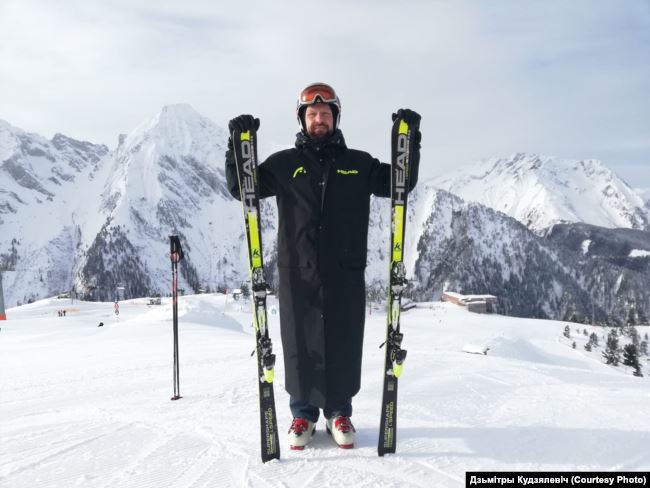
Source: Dzmitry Kudzialevich (Courtesy Photo) via Radio Svaboda
“There’s nothing heroic about my escape from the KGB building through the casement. There is nothing romantic about it either. There was a chance and I just used it, because I understood: it’s now or never. It was of no importance to me how to escape. I was able to see what was happening around.
“All my life I have been politically engaged and I know about all criminal affairs of our government. Of course, I do not associate with the politicians like Zakharanka and Hanchar or businessman Krasouski, but I knew that if I stayed at the KGB, I would not find it funny.”
I like Ukraine, but I did not feel safe there
The Ukranian border was the only possibility for Dzmitry Kudzialevich to escape from Belarus, because the borders to other countries were closed due to COVID-19 pandemic.
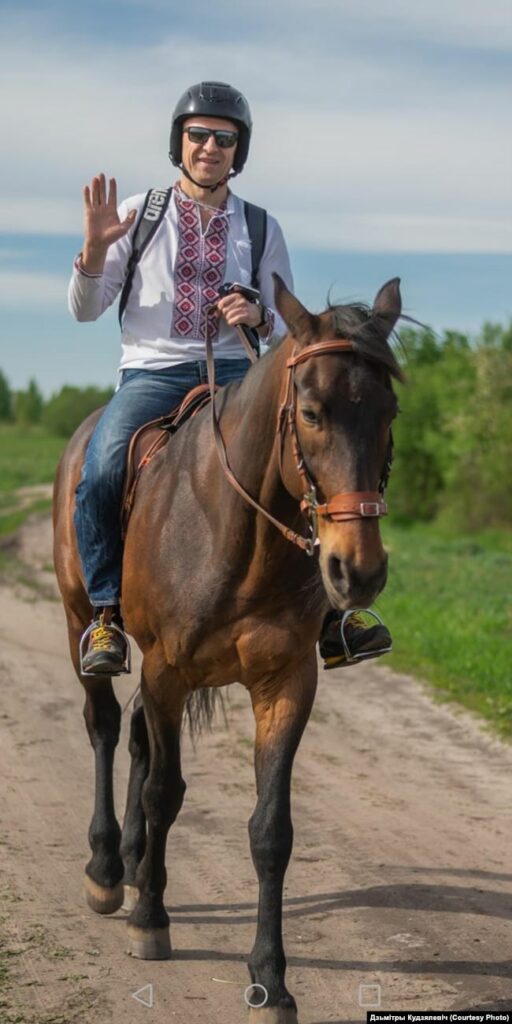
Source: Dzmitry Kudzialevich (Courtesy Photo) via Radio Svaboda
“On the Belarusian border there was no special control or any special attention to my person. I think that at that moment, since I did not have any official status [in a criminal or administrative process. – RS], they hadn’t put my name on a wanted list yet. Besides, the KGB employees probably thought that I was still somewhere in Salihorsk.”
Dzmitry has a lot of friends in Ukraine. He is an alpine ski fan and often visited Ukrainian alpine ski resort Bukavel. In February this year, when he was in Kiev, he recorded a special video from the Independence Square for his social media friends about the events that took place there in 2013-2014.
At the same time Dzmitry admits that, despite his good relationship with the Ukranians and Ukraine as a state, he wasn’t sure that after his escape from Belarus staying in Ukraine would be safe for him:
“I spent a lot of time in Ukraine, because, apart from my work at Belaruskali, I am also an individual entrepreneur. I was bringing tourists to Bukavel in Ukraine. I have witnessed both Ukranian revolutions.
“Once I was in Ukraine, I immediately called my friends there. One of them offered me to go to Kiev. Having arrived in Kiev I called my wife and my friends to tell them that I was safe. After that I applied to the Polish consulate, because I did not consider it very safe to stay in Ukraine since the borders to Belarus and Russia were open.”
I got help in Ukraine and Poland
According to Dzmitry Kudzialevich, upon his arrival to Ukraine he has got legal and financial help from Andrej Stryzhak’s BySol foundation:
“The foundation helped me with everything – with money as well as with accommodation. Nobody was indifferent to me.”
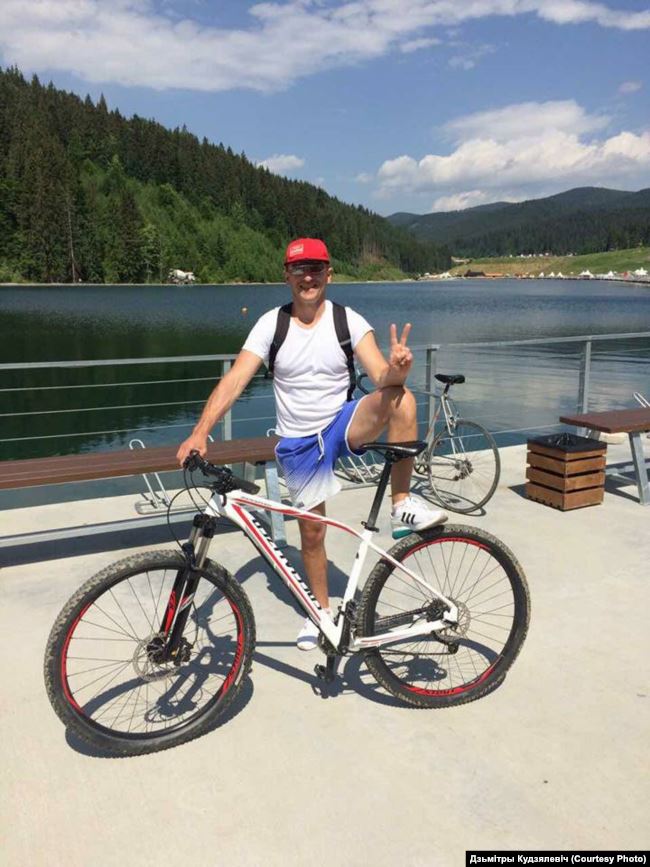
Source: Dzmitry Kudzialevich (Courtesy Photo) via Radio Svaboda
Within several days Dzmitry got a humanitarian visa at the Polish consulate in Kiev. Immediately after arrival to Poland he was sent for three days to a local health centre where, in agreement with the Polish authorities, many Belarusians who suffered from the police violence and manhunt during the first days of protests get medical treatment and rehabilitation:
“There were many physically injured people there. I shared accommodation with a young man who had got shot in the chest, a young man in the adjacent room had had his heel smashed by a stun grenade. There were many people there with both physical and mental trauma. They are being taken care of by Belaruski dom organisation in Warsaw.”
Dzmitry Kudzialevich is planning to apply to the Polish authorities for political asylum in the near future.
Belaruskali has already dismissed me
Dzmitry Kudzialevich stays in touch with his mates from Belaruskali strike committee every day.
“I have been dismissed from my work, the company has sent a corresponding notice to my home address. But I still keep in touch with my colleagues as well as with members of the strike committee. Activists are being persecuted and detained. Anatol Bokun, chairman of the strike committee, has also been placed under administrative detention.”
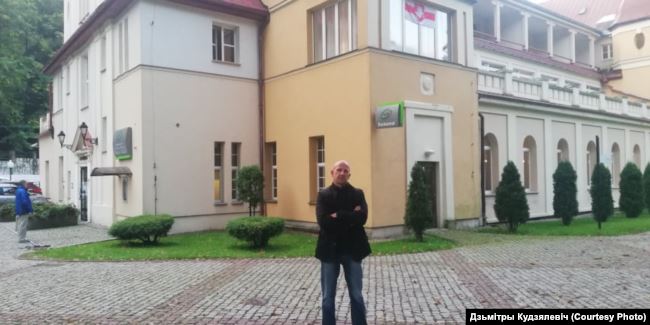
Source: Dzmitry Kudzialevich (Courtesy Photo) via Radio Svaboda
According to Kudzialevich, members of the strike committee are firm in their demands and intentions, but in general, if you take the whole Belaruskali organisation into account, the situation is not that simple:
“Around 20 thousand residents of Salihorsk work for Belaruskali. The administration exercises both active ideological and administrative pressure by threatening to take away bonuses or dismiss. The people are scared, they are afraid to lose their jobs. Unfortunately that’s why the company is still functioning. However, some people are trying to use Italian strike methods.”
Dzmitry says that the workers can influence the work process of the company without violating labour regulations:
“There is a special order of actions, and this is what we did in the beginning of the strike in order to gradually stop production. It can not lead to any human-made disaster in the company. But one has to stick to certain rules, both in the mine under the ground and above. Unfortunately, there are no sufficient human resources, because the administration also takes actions.”
Dzmitry admits that he continues working and helping his mates from the strike committee here in Poland, just like he did in Ukraine.
My wife was summoned to the KGB
Dzmitry’s family – wife and children – are still in Salihorsk. He misses them and is worried about their safety:
“My daughter turned nine on 25 September, my son will turn 17 in October. I miss them a lot and worry about their safety. After my escape my wife was summoned to the KGB once, now they keep silent. But this silence does not reassure me.”
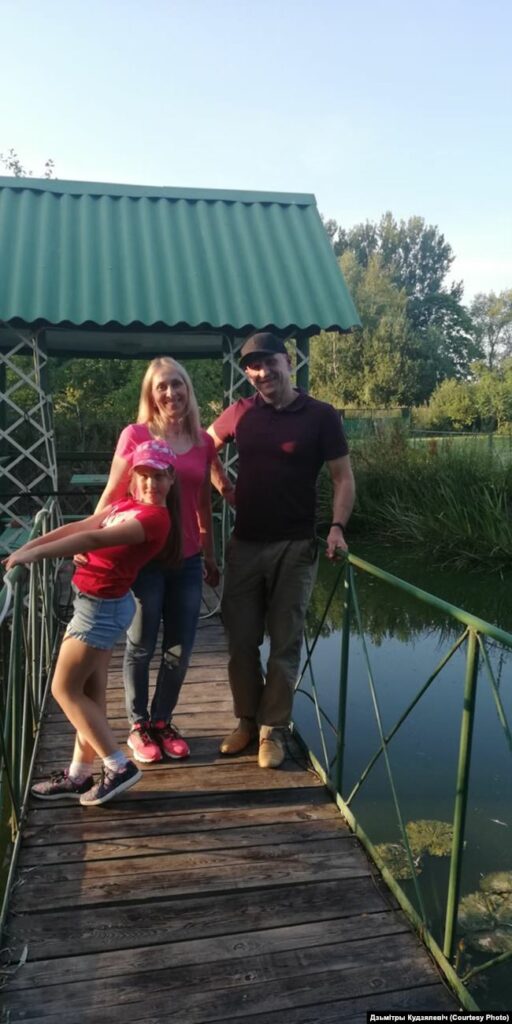
Source: Dzmitry Kudzialevich (Courtesy Photo) via Radio Svaboda
“It’s not quite clear yet how to organise life in Poland. My wife and I need confidence, our children need to go to school. I am not indifferent to my family’s destiny. I observe the situation and stay informed. Even if there is a minor threat to their safety, I will do everything to have them here with me. Everyday problems will be the least of my worries.”